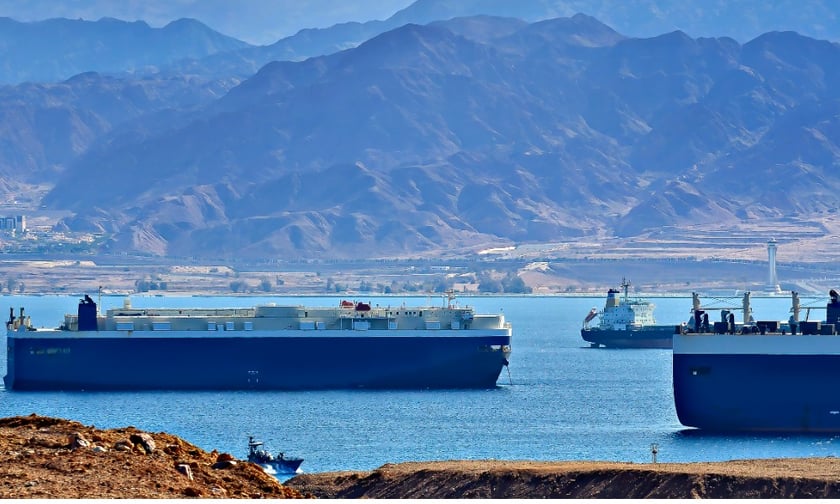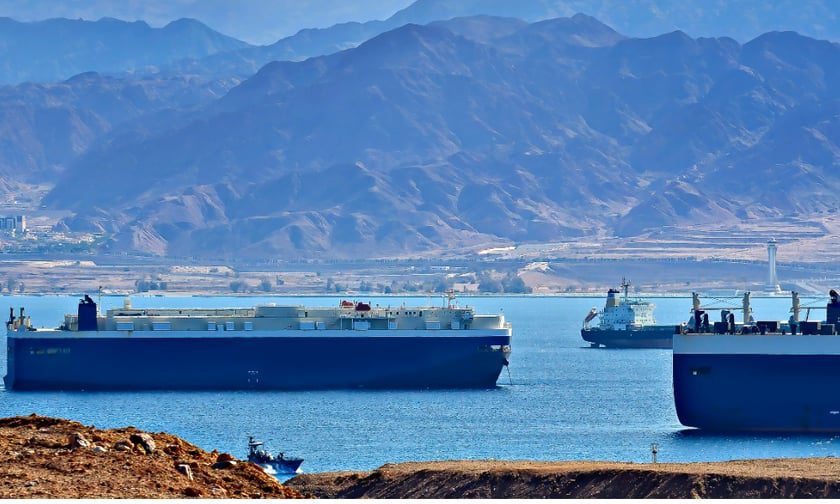Global economy has not been alarmingly affected as of yet, insurer says

The recent Houthi attacks on commercial ships in the Red Sea have caused notable disruptions in global shipping, leading to longer routes and increased costs, as reported by Allianz Trade.
The Red Sea plays a crucial role in global trade, with one-third of worldwide container traffic and 40% of Asia-Europe trade passing through this route. Moreover, 12% of the world’s seaborne oil and 8% of liquefied natural gas (LNG) traverse the Suez Canal.
In the 10 days leading up to Jan. 7, shipping volume in the Suez Canal experienced a year-on-year decline of 15%. The Bab-el-Mandeb Strait, which leads into the Red Sea, saw a more dramatic drop of 53%. The number of cargo ships and tankers passing through the Suez Canal decreased by 30% and 19%, respectively. Concurrently, shipping activity around the Cape of Good Hope nearly doubled, with a 66% increase in cargo ships and a 65% increase in tankers.
Despite the significant rise in shipping prices since November 2023, which saw a 240% increase as of early January, they remain at a quarter of the peak seen in 2021. The current demand backdrop, higher inventories in consumer goods segments, and increased capacities with new containerships suggest a lower risk of price hikes compared to 2021. However, if the crisis persists beyond the first half of the year, the impact on global supply chains could intensify.
Situation remains contained if disruptions are brief
The short-term impact of rising logistic costs on inflation, GDP, and trade is expected to remain contained if disruptions are brief. The effect of doubling shipping costs on inflation is notably higher in Europe and the US, potentially leading to a 0.7 percentage point increase, compared to 0.3 percentage points in China. For global inflation, this could mean an increase to 5.1% in 2024.
In terms of GDP growth, Europe could see a reduction of 0.9 percentage points, and the US a decrease of 0.6 percentage points. This could lead to a global GDP growth reduction to 2%. However, longer-term disruptions could reduce global trade growth in volume by 1.1 percentage points to 1.9%, raising the risk of a delayed rebound from the 2023 recession.
European energy prices remain highly volatile in light of the crisis. Following the Houthi rebels’ initial attacks, the Brent oil price, a European benchmark, increased by nearly 2%, while the US WTI price stayed relatively stable. In the same period, natural gas prices in Europe rose by 3.6%.
Despite these fluctuations and continued attacks, oil prices have been declining due to factors such as higher-than-expected supply, global demand concerns, and the continued passage of tankers through the Red Sea. For European natural gas prices, short-term supply tensions are not expected to majorly impact prices, given the high reserves and the nearing end of the heating season, despite a recent cold snap.
What are your thoughts on this story? Please feel free to share your comments below.
Related Stories
Keep up with the latest news and events
Join our mailing list, it’s free!

This page requires JavaScript




